Boyfriends - Interview
by John Clarkson
published: 16 / 4 / 2006

intro
Astrid Williamson has recently returned with her fourth album 'Day of the Lone Wolf'. John Clarkson speaks to her backstage in Glasgow on the first date of her largest tour since the 90's supporting Darren Hayes about her decade long musical career
For a short time in the late 1990's it seemed that Astrid Williamson was destined for major success. Over the course of a six month period between the Autumn of 1998 and the Spring of 1999 she was a prolific presence in the music press. As well as promoting her own album 'Boy for You' which she had recorded with Patti Smith producer and Daniel Lanois cohort Malcolm Burn in New Orleans, she guested, providing backing vocals, on six of the tracks on 'Twisted Tenderness', the second album by Electronic, New Order's Bernard Sumner and the Smiths' Johnny Marr on-off band of the time. There were fashion shoots modelling clothes for style magazines, and she toured with both fellow Scot Roddy Frame and Strangelove. Shortly after 'Boy for You' was released, Williamson, however, left Nude, extricating herself from her contract over a clause involving the United States as a major market, and disappeared out of the sight of the music public at large. It would be wrong to describe tonight's show in late April at the Glasgow Clyde Auditorium, the first in a two week series of dates supporting former Savage Garden front man Darren Hayes, as some kind of a comeback gig. Williamson has never really been away, continuing to craft music in Brighton where she now lives and since ‘Boy for You’ has written some of the best songs of her career. Suddenly though she has found herself thrust from playing 250 capacity clubs to 3000 to 5000 seat arenas, and tonight’s first show with Hayes is the largest gig she has performed since her first band Goya Dress played support and toured with Nude label mates Suede almost a decade before. Astrid Williamson was born in 1971 on the Shetland Isles, the daughter of a local fish factory owner. Always musical, she began writing songs and learned to play both the guitar and the piano at an early age. In her late teens she began studying for a degree in Music at Glasgow’s prestigious Royal Scottish Academy of Music and Drama. When she graduated in her early 20’s , she gravitated to London, where, after a spell earning her living playing the piano in Soho’s the Groucho Club, she formed Goya Dress with bassist Terry de Castro and the band’s only male member, drummer and percussionist Simon Pearson. Part Gothic folk outfit, part modern experimental classicists, Goya Dress attracted the interest of a variety of labels including One Little Indian and Epic Records, before signing to Nude in 1994. An album, ‘Rooms’, which was recorded with the former Velvet Underground viola player and bassist John Cale as producer, followed in 1996. It merged Williamson’s pitched vocals and hallucinatory, dreamlike lyrics with both passages of meandering melodic beauty and raging discordance. Orchestral in tone, string, woodwind and brass instruments battled it out, alongside de Castro’s spiralling bass and Pearson’s jazz-influenced percussion, for dominance against the main instrument of Williamson’s piano. ‘Rooms’ both shocked and stunned critics, and won the band a small cult following, but too eerie and odd for mainstream tastes and radio audiences didn’t sell well. When Goya Dress broke up amicably in early 1997, Williamson, who had been the band’s songwriter, made the natural progression of going solo, and became Nude’s first female singer-songwriter. The differences between ‘Rooms’ and ‘Boy for You’, which Williamson released under the moniker of ‘Astrid’, were wide. The songs on ‘Rooms’ had had a fantastical and dark Keatsian Romantic edge, creating an alternative world in which intoxicated lovers stabbed the objects of their passion to death rather than lose them, and islanders waited at dawn on the shore for their long lost loved ones to emerge on ships out of the fading dark. Those on ‘Boy for You’ were less other worldly, telling of love on the rebound and slide, misplaced passions, and lack of communication between lovers. As one astute critic put it at the time the songs on 'Boy for You' “feel like they have been lived, rather than imagined.” The music on ‘Boy for You’ was similarly more accessible. The melody that had been hinted at and which had underscored a lot of ‘Rooms’ was pushed to the fore, and much of ‘Boy for You’ had a pop folk sound, drawing Williamson, whose vocals were soft and bittersweet, instant comparisons with Joni Mitchell. More versatile in tone than ‘Rooms’, there were, however, also on ‘Boy for You’ country numbers, moments of ambience and jangly pop songs. Lavishly if slightly over produced by Malcolm Burn, it won universal acclaim, but again didn’t constitute in large record sales. After she left Nude, Williamson, now working under her full name, released her second solo album, which was called initially ‘Carnation’, as an internet-only album in late 2002 . Forming her own record label Incarnation the following year, she gave it an official release in early 2004, adding bonus tracks and renaming it ‘Astrid’. Musically on similarly territory to ‘Boy for You’, ‘Astrid’ was an album of many powerful moments, earning again good reviews, but, recorded without the big budget of its forebears, was starker and more muted in sound. Astrid Williamson is in Glasgow and on tour with Hayes to promote her third solo album, ‘Day of the Lone Wolf’. Released on Incarnation but with financial backing from One Little Indian, it is due out a few days later on May 1st. Expanding and building up further on the ambient and folk sound of its two predecessors as well as having several soaring pop moments, ‘Day of the Lone Wolf’ involves both the use of a grand piano and a strings section and has a more full-scale and larger production than ‘Astrid’. A dark, sexually ambiguous record, a deep sense of loss and a desperate craving for something better and at times beyond embeds much of its lyrics, whether describing an obsessive love affair that seems to be taking place in imagination only on ‘Siamese’ or confused, but more conventional relationships on songs such as ‘Reach’ and ‘Another Twisted Thing'. ‘Day of the Lone Wolf’ also finds Williamson harkening back to her classical past more so than at any other point since Goya Dress with two instrumentals, ‘Intro’ and ‘Carlotta’. Williamson comes on to stage exactly at 8, with her four piece band, guitarist Dan Burke ; bassist Richard Yale ; drummer Christian Parsons and keyboardist Mark Treffel. While it is many years since she lived in Glasgow, it is a homecoming gig of a sort, and a few members of the audience, including long term fan, 'Sunday Mail' music columnist and Scottish Television journalist Billy Sloan, have turned out specifically to see her. For the large majority of Hayes’ fans, Radio 2 listeners and 30 and 40 something couples, she is, however, a complete unknown. “Hello, I’m Astrid Williamson and this is my band" she says. "Thank you to Darren Hayes for having us on this tour. We’ve got a new album ‘Day of the Lone Wolf’ coming out in early May. This is one of the songs from it. It is called ‘Shhh…’” “Why don’tcha ?” shouts out one Glaswegian wag. His girlfriend, equally drunk beside him, brays with laughter. A breezy folk pop number with twanging guitars and a catchy hummable chorus, ‘Shhh…’, however, instantly silences any potentially hostile audience members, and is met with applause. The band launch into their second number, ‘Reach’. A brooding ballad and a hymnal paean to a love which has never ever quite worked out, Williamson’s surging harmonies on it seem to reach to the cavernous ceiling of the Clyde Auditorium, and the clapping at its end is louder and more assured. For the third song the ambient folk of ‘True Romance’ Williamson switches from guitar to piano, where she remains for the rest of her set. Forthcoming new single, the soaring, poppy ‘Superman 2’, comes next. It has been a brave set, one which has consisted entirely of new songs from the as-yet-unreleased ‘Day of the Lone Wolf’, and which for even those acquainted with ‘Boy for You’ and ‘Astrid’, has had to either stand or fall by its own merits. Williamson, however, has saved her boldest and most surprising move to last, a husky-voiced cover of Snow Patrol’s chart-topping torch epic, ‘Run’. It will be the B side to ‘Superman 2’ It is a move that, given Snow Patrol’s massive popularity in their native Scotland, could fall disastrously, spectacularly flat. Fortunately the Glaswegians love it, and as the song enters its final choruses, much of the audience sings along with the sort of fervour more usually associated with Celtic Park or Rangers on a Saturday or Sunday afternoon than the more staid environment of the Clyde Auditorium on a Thursday night. Williamson, moved, thanks the audience, and, with Christian Parsons patting her reassuringly on the back, leaves the stage to pounding applause. Afterwards in the interval in the half an hour before Darren Hayes comes on stage, Williamson signs CDs at the merchandise stand in the foyer. Early pre-release copies of ‘Day of the Lone Wolf’ sell well, and both ‘Boy for You’, which has been re-released on Incarnation, and ‘Astrid’ also do steady business. Some Glaswegians buy copies of all three. Williamson has to sell 41 albums a night to break even, and tonight surpasses that figure without any bother. A tannoy announces that there is five minutes until Hayes comes on stage, and then again that there is two minutes. The queue waiting for autographs trickles away and the foyer empties. As a Mercedes pulls up outside the glass entrance and Hayes, clad in a baggy Paisley dressing gown, leaps out and rushes past into the arena surrounded by a large team of minders, Williamson greets Billy Sloan. They are old friends. Sloan filmed a documentary about her for STV at the time of ‘Boy for You’ and they talk over plans for him to bring her on his show on local Radio Clyde when she returns to Scotland at the end of the Darren Hayes tour in three weeks time to play some headlining dates including a show at Glasgow’s King Tut’s Wah Wah Club. It is then the turn of Pennyblackmusic. It is a meeting which begins in the venue’s stand-up bar and which then, when after a few minutes we are chased out of there so that the bar staff can clear up, continues in the band’s dressing room. Williamson is tour managing herself. It has been a long day and she is both visibly tired and also excited at everything having gone down so well. Instantly likeable and often very funny, she, however, is giving of her time even of this busiest of days and proves happy to chat at length about her music. We speak about the Nude years, Incarnation, and ‘Day of the Lone Wolf’. PB : Why did you decide to call this new album 'Day of the Lone Wolf’ ? AW : I read a book about birthdays called 'The Secret Language of Birthdays' and my birthday, the 28th of November, is the Day of the Lone Wolf. I have always liked my own company and spending time on my own, and I thought "Right at last ! I can legitimately be a loner (Laughs). I don't have to justify it anymore.” PB : Does that title fit in as well with the fact that since ‘Boy for You’ everything you have done in your musical career you have had to do off your own devices and largely by yourself ? AW : Yes, it does. After 'Boy for You' everything kind of collapsed. There was a lot of hope in that record. It was very well critically received, but when things didn’t work out with it commercially there was also a lot of disillusionment. I left Nude and didn't know which way to go for a while. For a while I didn't know what I was going to do. PB : You were really prolific for a while between 1998 and 1999. AW : And then suddenly there was nothing (Laughs). PB : It must have been a blow to your self-esteem and confidence when everything ground to a finish. AW : I have always generally been well received and I never had that doubt about being respected. I didn’t feel like I had lost everything because I hadn't. I had these good records behind me, but I didn't know what it felt like to have suddenly a blank canvas in front of me again. I had known what it was like when Goya Dress was starting up, but everything was optimistic then and I had had youth on my side. I hadn't known what it was like to start over again and initially I thought that maybe I wanted to stop, that maybe I didn't want to make music anymore, but after six months of not making records and not doing shows I felt "God, I have to do this again." PB : What did you do during those six months ? AW : I moved to Brighton, sat on the beach, got a suntan and I thought "This is cool" and then as you do I ran out of money (Laughs). PB : What was your relationship with Nude like ? It has sometimes been said that it was not a happy one. AW : No, it was a good relationship. That's what happens when things don't work out. People want a reason. I have got no complaints about Nude really. I think I got a little bit styled, but I went along with it and frankly if everything had worked out the same people would have said how brilliantly we had got it right. Nude put a huge amount of money into me. They committed on a grand scale and I have nothing but praise for the amount of commitment gave to me. PB : How did you find working with John Cale and Malcolm Burn ? Was it scary? AW : No, I have only become scared latterly. When I was younger I wasn't scared of anything. Nowadays I am scared of practically everything. When I was 25 I wasn't scared of anything. I thought the world was great and I thought I could do anything I wanted (Laughs). I sometimes question whether you need to fall down a bit, not out of pride, but just to have your wings clipped a little. I don't like that idea because I think if you're brave and you try you should be rewarded, but maybe though I was a little rash in my attitude in those days. I wasn't afraid of John and Malcolm. I found them both a little domineering, but they were great to work with and I learnt a lot from them both and especially Malcolm. Malcolm had his own recording studio in his house in New Orleans and he had set it up in a similar style to Daniel Lanois' Kingsway Studio. He had worked with Dan on U2's records. The way that Daniel Lanois had set up his studio at Kingsway was just sublime. There were beautiful Persian rugs and gorgeous lights and candles and beautiful things to look at everywhere. It was this gorgeous environment. PB : What was it like working with Cale ? AW : John’s great, I worked with him again after Goya Dress. I did this thing called Dead Agents at the ICA in London in late 1999 with him. It was a multi media evening in which he had set some music to some poems by the poet Leo Marks and I did some singing for him at that. It was a lovely experience and very atmospheric. I enjoyed that in some ways more than ‘Rooms.’ PB : Did you produce the ‘Astrid’ album by yourself ? AW : No, I co-produced it with a guy called Robert White who was in Levitation. He was wonderful. When I had worked with Malcolm and John, even though they were fantastic, because they were on their own agenda, especially time wise, I had sometimes felt a little stifled as a singer. When I worked with Bob we did 'Call for Beauty’ first of all. He built the whole track around my voice and I had never had that before. It was an incredible pleasure. PB : Where did you record that album ? AW : In Brighton at Bob’s studio, the Milk House. I fought with John and I fought with Malcolm, but with Bob there was this perfect, friendliest rapport. That record cost next to nothing to make and we recorded it on a quid pro quo basis. I did some backing vocals for him and worked as a kind of hired hand singer in return for him giving me some studio time Sometimes I am sad about the fact that album was recorded so cheaply. 'If I Loved You', 'Tumbling into Blue' and 'Never Enough' from that record I think are all really strong songs, but because of the absolute lack of budget, the zero budget, there are no strings and no real piano on it and I felt very curtailed by that. Sometimes I think it is like a record of huge songs that didn’t really get the attention to detail it deserved. I think the singing on it and the piano playing that is there is great. It is a little bit less bitty than 'Boy for You', but I do regret that some of those songs which I think are among the finest that I have done don’t sound fuller. The third album is supposed to be the album where you hit a peak, a writing peak and where you get your confidence together and write how you are going to write and I am sorry about that, even though I am also so proud of that record. It is a great record. It also has outsold everything else. People love that record and it’s the one which is like my runt (Laughs). PB : How long did it take you to decide to set up the Incarnation label ? AW : It took quite a while. I had made the 'Astrid' record or ‘Carnation’ as I originally called it and was pressing it up 10 at a time and selling them at shows and then I got an opportunity to buy my back catalogue. I had that opportunity because Nude had folded. Someone at the label had bought up my back catalogue at an auction and I bought it them from them and decided to start Incarnation both so that I could re-release ‘Boy for You’ and also put out ‘Astrid’ officially . I had a friend who had set up his own label and so I took a lot of early advice and inspiration from him. PB : Incarnation has also been responsible for releasing ‘Air Conditioning’, a mini album by a band called Oskar . Who are they ? AW : I am actually doing a show with Oskar on Tuesday in Bristol in between the Nottingham and London dates with Darren Hayes . Oskar are great. They are friends of mine in Brighton, and a duo which consists of Nick Powell who was in Strangelove and Jonny Dawe who used to be in Collapsed Lung. I guest occasionally with them, but it is not like they are my band. I was tired of hearing Nick and Johnny saying that they were going to do an Oskar record and it not happening, so I offered to put it out for them. I have got distribution with Shellshock and I told them “All that I can give you is a distributor, a home and as much energy as possible. I have got no money, but I’ll give you all my energy, as much as I can” (Laughs) and that galvanised them and gave them the boost they needed. Now that that record is finished they are doing another one and they have got a deal with Universal which is fantastic. I am so proud of being a part of that. PB : Would you release something else by another artist on Incarnation ? AW : Yes ! I have been working with Heidi Berry, who was on 4AD. I am hoping to do a record with her. I am hoping that she will record it this year and that we will put it out next year. I’ll tell her that I have spoken to her about it and she’ll have to do it now (Laughs). PB : Is it true that you were on your own the Christmas before last and you wrote a lot of the songs for ‘Day of the Lone Wolf’ then ? AW : Yeah. I had some of the songs already. I didn’t have all of them though. I didn’t have ‘Amarylis’. I didn’t have ‘Only Heaven Knows’, which is the secret track. I wrote that on New Year’s Day 2005 and that is the most recent thing that had ended up on the record., but songs like ‘True Romance’ I had had for a while. I had had ‘Reach’ for a while as well. ‘Reach’ had actually already been a vinyl single, which I had put on Incarnation on picture disc. PB : You were the sole producer on this record. Where did you record the album ? AW : I recorded the drums and the bass in a place called Church Road Studios in Brighton and then I went to the Milk House to record the vocals. There is a very fine engineer called Paul Pascoe who is in a band called Mudlow. He did all the engineering for the drums and bass and then he mixed the record. Robert Wright helped me put on the strings on because with this record I thought “There’s no way I am falling for it again. I am getting strings and I am getting piano. If it is the last record I will do I will make it perfection for me.” It’s not perfection and it won’t be the last record I do, but I got much nearer to it this time than I did with ‘Astrid’. We did the strings at the Milk House as well. Dan Burke, my guitarist, has a beautiful grand piano in his house and so we did all the pianos there. Dan and I did the guitars at Sparker Studios, a rehearsal studio in Brighton. He was my engineer when I was playing my guitar parts and when he was doing his guitar takes I engineered for him. PB : When you’re writing do you compose on the piano or the guitar or both ? AW : Both. And sometimes now that I have Logic I have started to write with that. I just programme something. It’s great. It’s very exciting. PB : How long have you been working with your current band for ? AW : They’re a very, very good band. I have been working with Dan Burke and Richard Yale who plays bass for four years.Robert White introduced me to Richard and I met Dan through a music school.We both did a stint teaching at a place called Nick Music Studios. It no longer exists sadly.Christian Parsons who plays drums used to play in a band called Pollack and Mark Treffel was actually the engineer on the demos that are featured on the 'Astrid' record. PB : What’s your relationship with One Little Indian with this new record ? They are helping out with it. AW : It is an Incarnation record, and I have a licence for it. One Little Indian are doing the marketing. When I did the ‘Astrid’ record I had to organise all the press and all the radio myself. People like Billy Sloan were very supportive, but it was often hard finding contacts. This time I have a press officer to do a lot of that which is fantastic. When I first started out running Incarnation I didn’t know how many different jobs there were involved in getting a record out. It is like a car. A car can’t run if it doesn’t have a front wheel. I now look at my career like a car. Every component is necessary to make it go, whereas when I started, not that I was a megalomaniac or anything, I just didn’t understand how much work everyone else did. You don’t really get anything much when you are young and starting out in the record business, but now especially as I have done it for myself I have got much more of an understanding. Derek Birkett, who owns One Little Indian, actually offered me a deal with Goya Dress, so things have gone completely full circle with them in a way. He’s been a fan for such a long time. I really trust One Little Indian. PB : Where do you take the inspiration for the songs from ‘Day of the Lone Wolf’ from ? AW : A lot of it is very somewhere over the rainbow in its attitude. It is about thinking that somewhere out there is going to be satisfaction or happiness. A lot of the album lies in wanting to arrive but never quite arriving emotionally or reaching that place where you will be satisfied. If I could figure out how to do that and how to find that happiness I would probably stop making records (Laughs). PB : Why did you decide to put the last track, ‘Forgive Me’, at the end ? AW : The secret track, ‘Only Heaven Knows’ is after that, so it’s not really the end. I think there is something quite peaceful about 'Forgive Me' though. It’s got an almost U2 vibe. Sometimes, rather than being diminished by life and what it throws at you, you can find your character in adversity. There is an element of humility in ‘Forgive Me’, of realising that maybe you didn’t know it all and you weren’t so right all the time. There’s a grace and a kind of dignity in realising that. I was trying emotionally to tap into something that wasn’t as sexually ambiguous and as full of yearning as some of the other songs on the album. It’s got a slightly different mood. I know that, like much of a lot of the rest of the album, it is still a sad song but I think there is an element of peace to it as well. PB : You have used words like grace on a couple of occasions tonight. Are you religious or do you see yourself as spiritual ? AW : I believe in God.I light the candles and I pray....mostly I try to be kind. PB : Like most good songwriters you leave things just open enough for the listener to put his or her own experience on things. Is privacy important to you as well ? AW : Yes, definitely. I don’t really touch upon this a lot, but a lot of the reason why I write is because of the sad things that happen to me. It is a reaction to different painful things. A lot of the writing, and a lot of the nature of how I write, the loss, the yearning and the sexual ambiguity, all derive from painful things, but at the same time I don’t want to add to anything that is negative by being perceived as a victim. Instead I would rather that these things happened and that I was able to turn them into something creative and positive, and something that I can hold and love. I think that is why I am not more specific about what I write and the sad things in my life. I don’t want to say “Look at me and these sad things” and end up as a victim. There are often several reasons why I write each song, but I won’t tell anybody what they are because I don’t think it is the point. The work is the point. I really tend, therefore, to guard my privacy. I also hate the fact that once a person knows something about you they can’t un-know it. They will never see you in the same way again. The work is the thing that needs to be seen. That is what they should be looking at, not you, although I think everybody finds it hard to separate the person from what they create. PB : There are two instrumentals, 'Intro' and 'Carlotta' on the album. That might surprise some of your fans, especially as you have got a reputation for being such a vocal performer. Why did you decide to put those on ? AW : I said to myself before I started working on 'Day of the Lone Wolf' that I was going to make exactly the album I wanted to make and it never occured to me not to put them on. PB : You’re doing this tour. What comes after that ? AW : Well, we will be releasing the single, 'Superman 2', directly after the tour. Then, after that, as my former education has taught me, nothing will happen and it will all come to a tragic end (Laughs). After that though I hope we will try and do some festivals. I also want to do a lot of writing. As I don't have a manager, I have been concentrating really hard on the business of putting out the record and touring for the last few months and I haven’t done any writing for a while. When I do write I tend to do just that, write and write. I know that when I create a bit of space it will come. PB : You’re not a musician who can write on tour ? AW : Yes, I can. I wrote 'Shhh...', for example, when I was on tour with Cinerama a couple of years ago. I have got my phone and all this sophisticated equipment on that and I can record on that as well. I write all the time when I can, but at the moment I have been so head deep in work and getting the record out and organising the tour that it has not been possible. PB : There is a line on ‘Reach’ “if it is good/should it be easy and if it is easy/is that good ?”. The song's about a relationship, but could that be related to how you feel about songwriting ? AW : In my experience of songwriting, if an idea comes and it flows out easily and you don’t have to work too hard, then that is the idea that you usually stick with. Songs like ‘Boy for You’ I wrote very fast. I wrote the lyrics really quickly. They came flowing out. I had to craft it a little bit, but really most of the songs off that album were each done in 24 hours. One of the luxuries of having a big record deal with a lot of money was that I could go on and do long nights of staying up until five ‘o’clock in the morning and then sleep in the next day as I didn't have to worry about earning a living. I wrote an awful lot during that period. I miss that luxury of being able to play into the night. Even now though a lot of songs I feel I have to craft a lot I sometimes feel aren’t quite as good. The ones that come out easily are the ones that you definitely have confidence in. PB : Do you throw away a lot ? I have hundred of songs that aren’t quite good enough. They are like also rans. It is very much in your heart. You know when you're not being authentic to your art. You feel like you are telling a lie. The only thing that makes it real is that it has to be real for me and when I try to force it, put a square peg into a round hole, it is really hard.
Picture Gallery:-
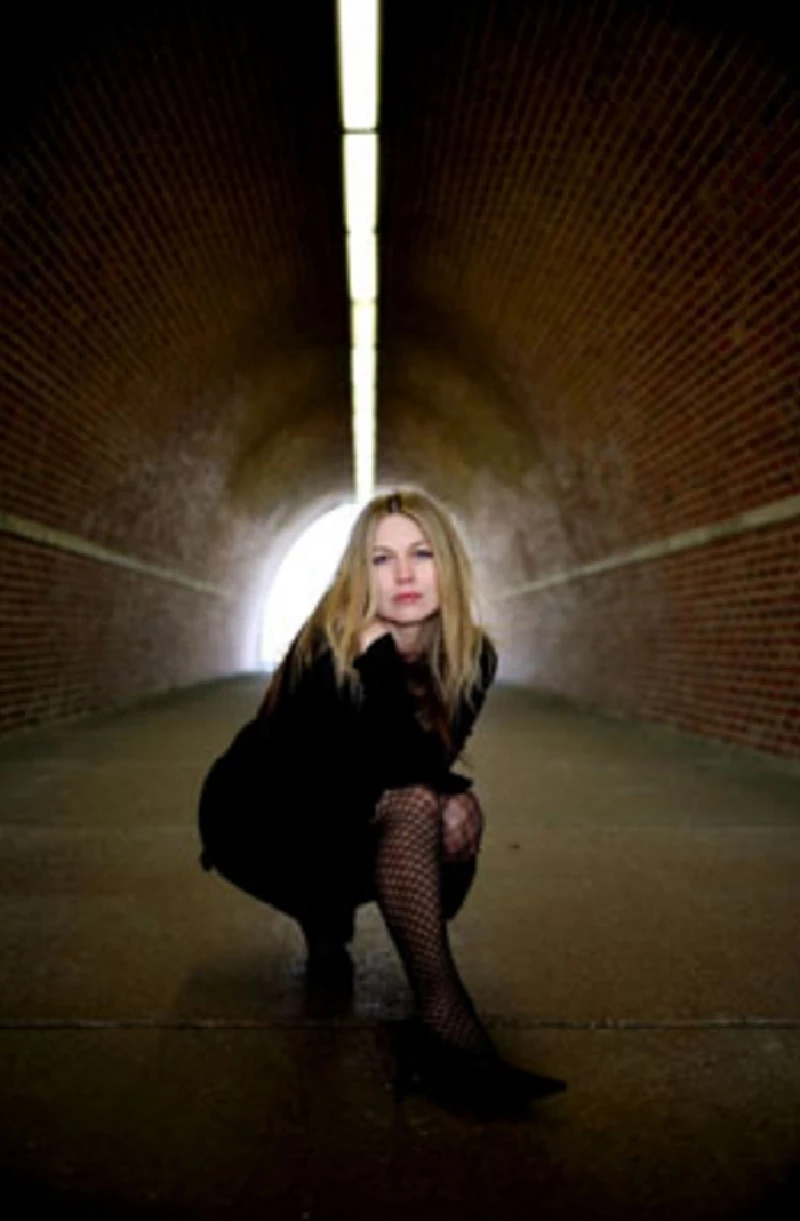
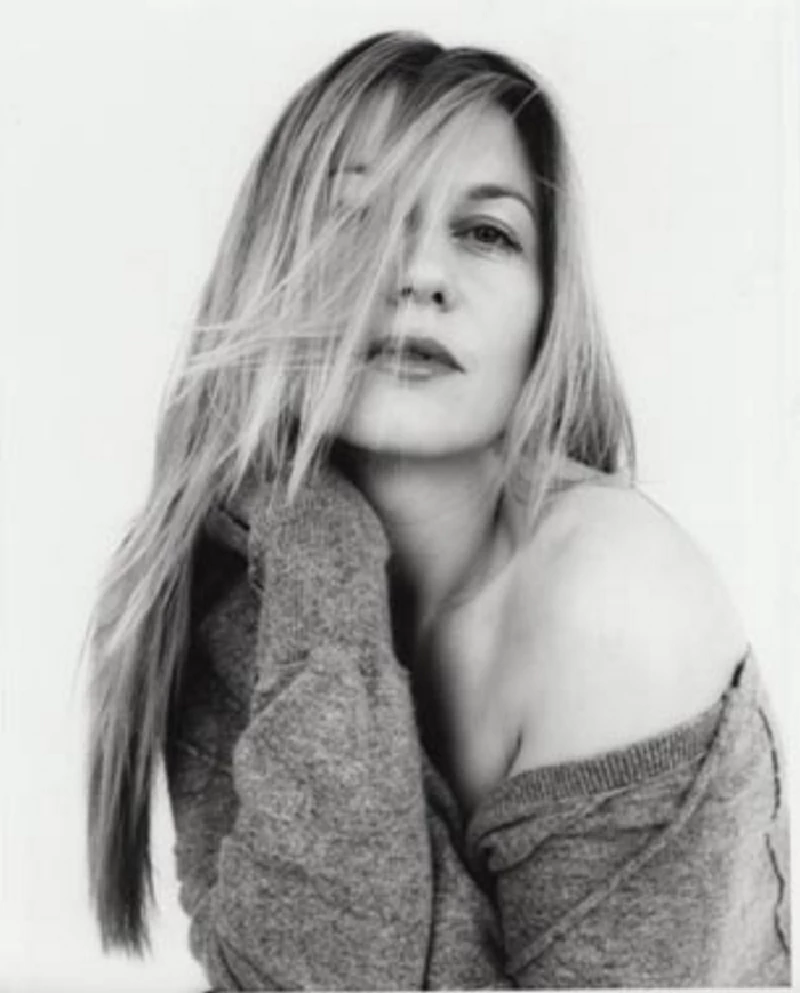
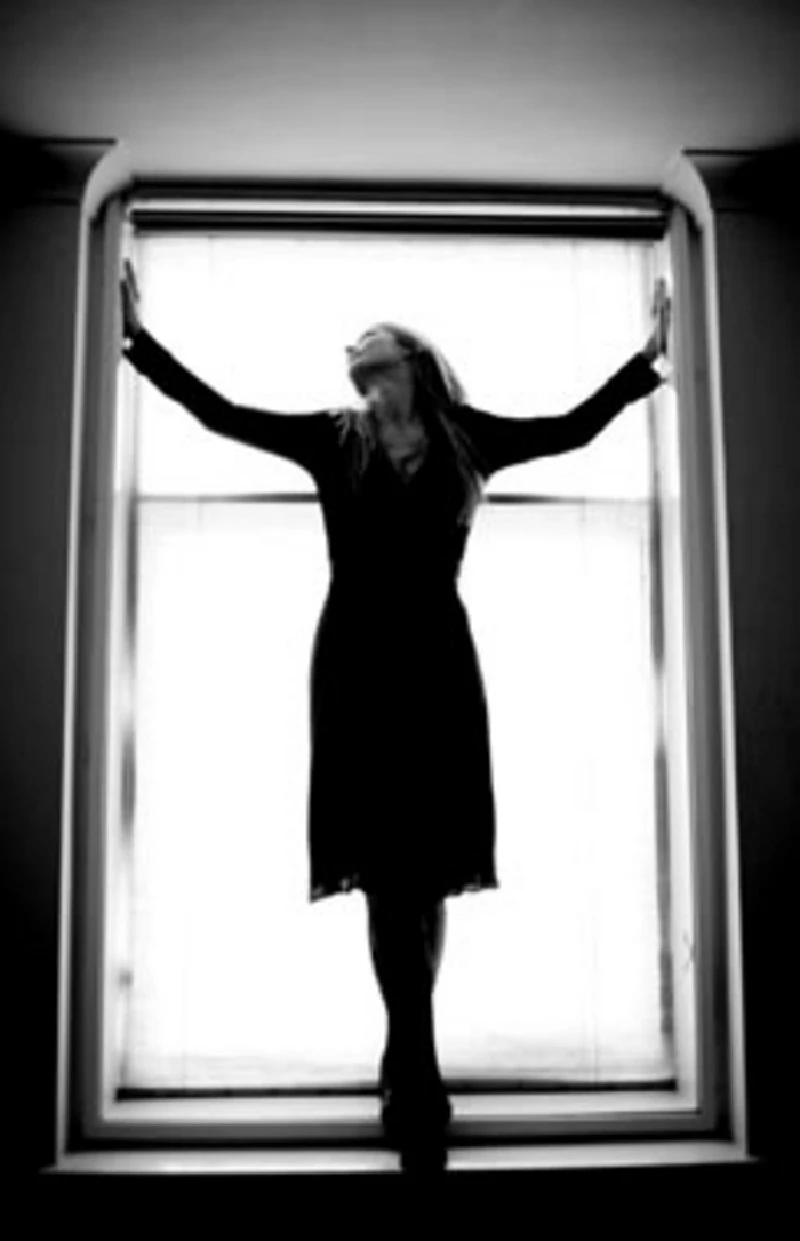
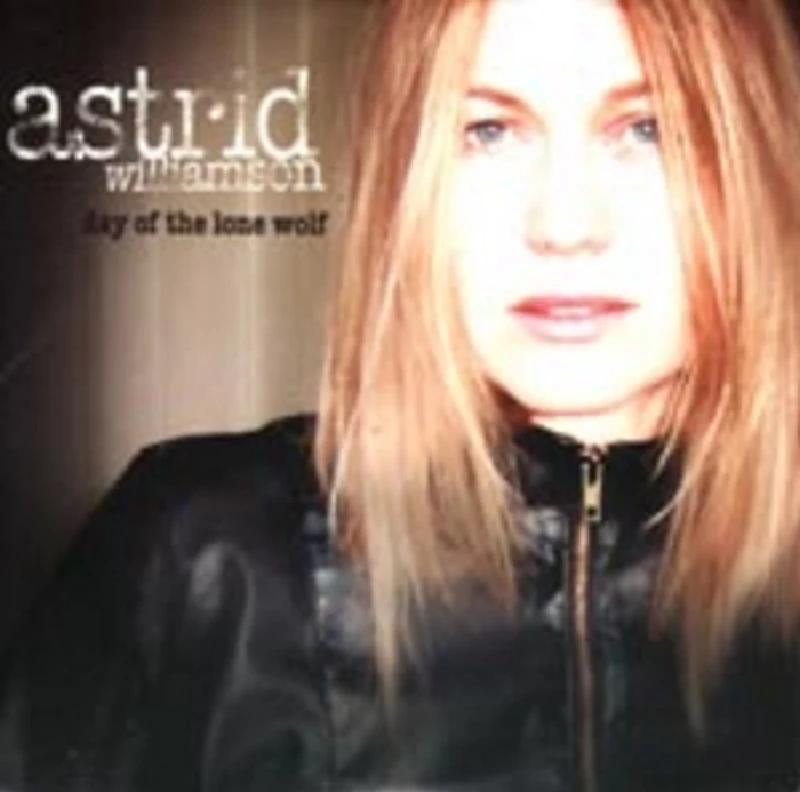
interviews |
|
Interview (2006) |
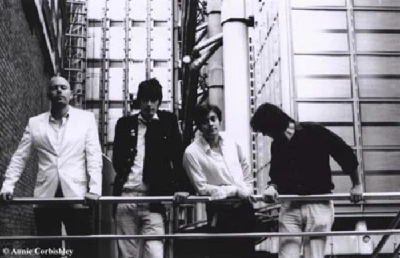
|
| One of the most praised new bands in indie rock, the Boyfriends are about to release their second single 'Adult Acne'. Anthony Strutt chats to them about their influences and plans to release an album |
reviews |
|
Boyfriends (2006) |
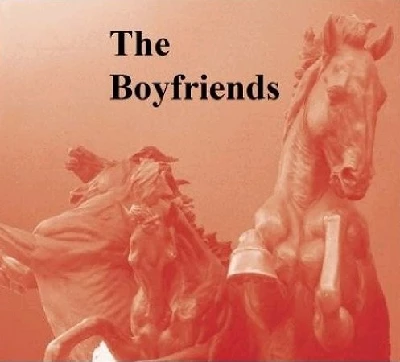
|
| Anthemic and stunning long-awaited debut from London indie guitar four piece, the Boyfriends |
| Once Upon a Time (2006) |
| Adult Acne (2006) |
| I Love You (2005) |
most viewed articles
current edition
Carl Ewens - David Bowie 1964 to 1982 On Track: Every Album, Every SongArmory Show - Interview with Richard Jobson
John McKay - Interview
Colin Blunstone - Thalia Hall, Chicago, 16/7/2025
Bathers - Photoscapes 1
Billie Eilish - O2 Arena, London, 10/7/2025
Loft - Interview
Visor Fest - Valencia, Spain, 26/9/2025...27/9/2025
Sir Tim Rice - Interview
Robert Forster - Interview
previous editions
Manic Street Preachers - (Gig of a Lifetime) Millennium Stadium, Cardiff, December 1999Heavenly - P.U.N.K. Girl EP
Beautiful South - Ten Songs That Made Me Love...
Peter Perrett - In Dreams Begin Responsibilities Interview Part One
Boomtown Rats - Ten Songs That Made Me Love....
Oasis - Oasis, Earl's Court, London, 1995
Coldplay - Wembley Arena. London, 16/8/2022
Prolapse - Interview
Trudie Myerscough-Harris - Interview
Pixies - Ten Songs That Made Me Love...
most viewed reviews
current edition
Davey Woodward - Mumbo in the JumboSick Man of Europe - The Sick Man of Europe
Lucy Spraggan - Other Sides of the Moon
Amy Macdonald - Is This What You've Been Waiting For?
Suzanne Vega - Flying With Angels
Blueboy - 2
Bush - I Beat Loneliness
Phew, Erika Kobayashi,, Dieter Moebius - Radium Girls
Alice Cooper - The Revenge of Alice Cooper
Cynthia Erivo - I Forgive You
Pennyblackmusic Regular Contributors
Adrian Janes
Amanda J. Window
Andrew Twambley
Anthony Dhanendran
Benjamin Howarth
Cila Warncke
Daniel Cressey
Darren Aston
Dastardly
Dave Goodwin
Denzil Watson
Dominic B. Simpson
Eoghan Lyng
Fiona Hutchings
Harry Sherriff
Helen Tipping
Jamie Rowland
John Clarkson
Julie Cruickshank
Kimberly Bright
Lisa Torem
Maarten Schiethart